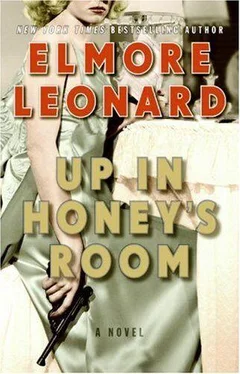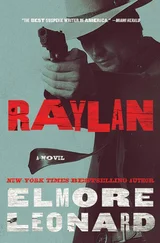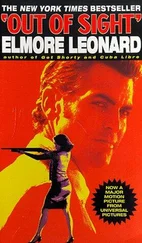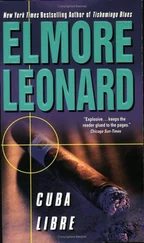Jurgen watched Vera drink a shot of vodka, refill the glass and turn to him. “What are you waiting for?”
He raised his glass, took the swallow of vodka and let her fill the glass again.
“You know you bombed Odessa to rubble.”
“I’ve never been to Odessa,” Jurgen said.
“You know what I mean. Our home escaped the Stukas because we lived three kilometers east of the harbor. You marched in pushing the fucking Romanian Fourth Army ahead of you to do the dirty work, and what did you find? Nothing. The fucking Russians had gone, taking everything they could carry. It’s what they do, they’re looters. They used to check out of hotels with towels in their bags, pictures if they can pry them off the walls. The Romanians are another story. They come to Odessa and begin murdering Jews. They shot them, they hanged them from light poles on the main streets. They put them in empty storage buildings, as many as twenty thousand, locked the doors and machine-gunned them through holes they made in the walls. Then they set the buildings afire and tossed in hand grenades. Do you believe it? In case any of the Jews were still alive.”
Bo said, “Tell about the Death Squads.”
“The SS,” Vera said. “The war came to Odessa and my life changed, from one of relative leisure to the appearance of leisure.” She gestured. “This home. My husband was in the shipping business, coastal freighters that traded among ports on the Black Sea. Fadey got along with the Soviets, gritting his teeth, offering bribes when his bullshit wasn’t enough. He had only complimentary things to say about Josef Stalin, that pockmarked midget. Do you know how tall he is? The Russians say five foot six. Oh, really? He wears lifts in his shoes or he’d be no taller than a five-foot pile of horseshit. It’s the reason he’s killed ten million of his own people. His mother sent him to a seminary to become a priest, but God rejected him.”
She kept talking, Jurgen listening.
“I told you the siege began in June 1941? My husband Fadey became a blockade runner like Rhett Butler. Slip out of Odessa and cross to Turkey, neutral at that time, and return with guns and food supplies. Turkish wine also, I couldn’t drink. Fadey was with elements of the Soviet fleet. Stukas dove on them and sank two destroyers, Bezuprechnyy and Besposhachadnyy, also a tugboat and Fadey’s ship. He put out to sea and I never saw him again, my husband, taken from my life.”
Jurgen waited a few moments.
“The Germans killed your husband?”
“Or was it a Soviet gunboat sunk his ship?”
“I was told your husband was a Polish cavalry officer, killed in action.”
“That’s the story they gave me. I arrive in Detroit the widow of a Polish count no less, who met his end heroically, fighting tanks with horses. I come with social position, one that’s more acceptable than the widow of a Black Sea gunrunner. I asked at the spy school if the count knew what he was doing. They wouldn’t say. I asked if there was such a person. They still wouldn’t tell me. On my passport I’m Vera Mezwa Radzykewycz, Countess. Do I look royal?”
“Indeed,” Jurgen said. “But the widow of a gunrunner isn’t a bad story. It could have attracted support.”
“I told you I was contacted in Budapest by Sally D’Handt, a turncoat Belgian who became a spy for the Germans. Now she recruits for military intelligence, gathers lost souls into the Abwehr. You’ve heard of Sally? She’s famous.” Jurgen shook his head as Vera said, “Blond hair like Veronica Lake’s, very theatrical. She told me with great solemnity it was a Soviet gunboat that sank my husband’s ship. She said they were ordered to because the repulsive Josef Stalin didn’t trust anyone.”
“Did you believe that?”
“The Soviets were always at us. Sally asked if I had ever been to America. Yes, when I was a girl. Would I like to go back now, during the war? I said I would love to. Now the turncoat Belgian cunt actually made tears come to her eyes, she’s so moved. Close to crying as she tries to smile to show her joy that I agree to come here. It’s the look Joan Fontaine gives Cary Grant in Suspicion when she realizes he loves her. Or, the look that says the moment the camera stops rolling she and Cary will be in her dressing room fucking each other’s brains out. It’s that kind of look on Miss Gestapo’s face as she murmurs, ‘Vera, you are exactly the woman we need to gather intelligence from the very arsenal of our enemy, the city of Detroit.’ Or did she say, ‘the so-called Arsenal of Democracy’? Now I’m not sure.”
Vera shrugged in her loose sweater. Now she decided to have another cigarette.
“From Budapest I came to Detroit by way of Canada. I took the place of an agent who turned in her own spy ring once the FBI began picking on her, Grace Buchanan-Dineen. She called herself ‘Grahs’ and was the only agent I know of, besides Ernest Frederick Lehmitz, who used invisible ink in messages to her contacts. Lehmitz reported on ships leaving New York for Europe until he was caught and sent to prison.”
Jurgen said, “Was this Grahs’s house?”
Vera smiled. “That would be funny, wouldn’t it? The German spy house. No, Grahs lived downtown, on the river. I was given the house on a lease that runs until June of this year-”
“You have only two months?”
“Wait. I was given a five-thousand-dollar bank account and a thousand a month to cover expenses.”
“That sounds rather generous.”
“Last year it was reduced to five hundred a month. This year the checks have stopped coming, the last one was in February.”
Jurgen took a cigarette from the dish. Vera reached toward him snapping her lighter.
“You’re out of funds?”
“Don’t worry about it.”
“What will you do?”
She looked at Bohdan. “We talk about it.”
“Constantly,” Bo said, pouring a vodka. “I tell Vera to become a rich man’s concubine and I’ll be the eunuch.”
“You’re not German,” Jurgen said to her. “Why are you working for German Intelligence?”
“She hates Russians,” Bo said.
“I dislike them. The only part of this war I don’t mind,” Vera said to Jurgen, “you and the fucking Russians killing each other. I’ll tell you something. In 1940, ’41, all the young grenadiers in newsreels looked sexy to me. You were attractive, proud of yourselves, you had ideals you believed in. You sang, you marched, you sang while you marched. I remember thinking this was very bad light opera. But the upbeat mood of it was catching. I liked the purity of it, a new Germany full of healthy young men and women with Nordic features and platinum hair. In that crowd I knew I’d stand out like a film star. But, did I want to trade one police state, Stalin’s, for another? Have to be so careful of what I say? How can I look at the super-Nazis goose-stepping down the street and not think them ludicrous? I thought, Well, the Germans are a strong, self-willed people, they won’t stand for Adolf and his gang too long, having the Gestapo in their lives. After the war it will change back to the way it was.”
“What about the killing of Jews,” Jurgen said, “do the people accept it?”
“They turn their heads.”
“But they know about the death camps.”
“They can only wait until Germany is beaten and Adolf is tried before a world court. Everyone knows the end is coming. I hear: we can’t win. We should settle for peace now and try it again in ten years. I hear: America will demand unconditional surrender. Germany will have to give up the land it stole, the countries. Give up everything, or the Russians will be turned loose on them.”
Jurgen was shaking his head. “We won’t have a choice.”
Читать дальше












